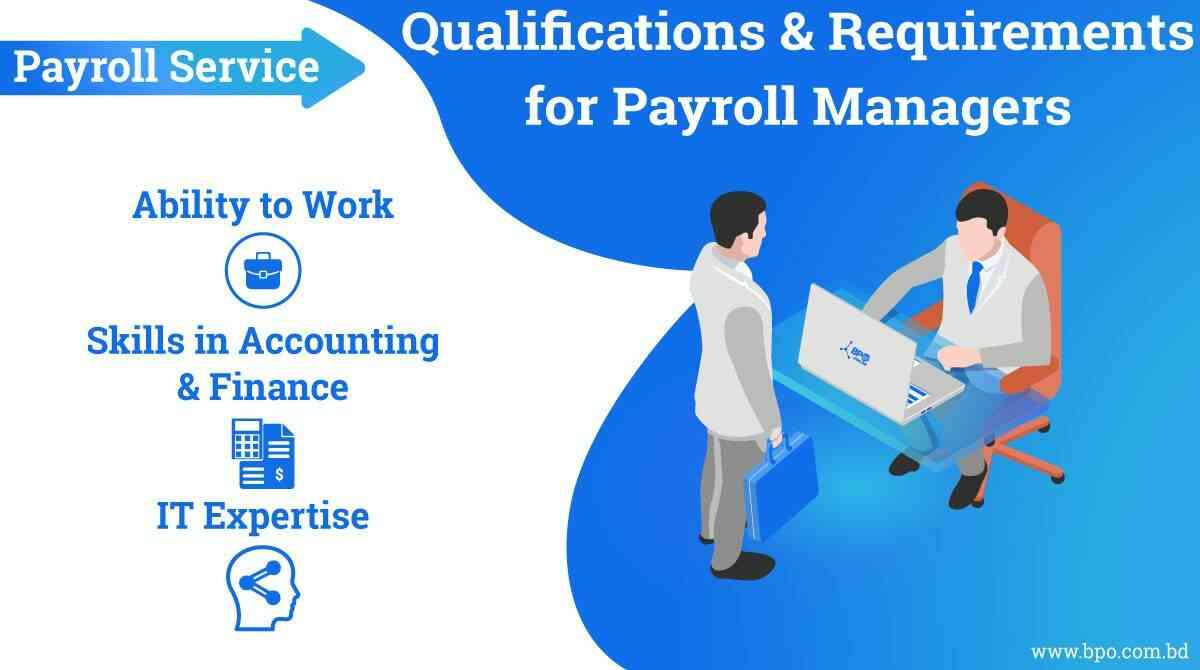How Does A Payroll Service Provider Perform?
- - Category: Business Ideas
- - 01 Sep, 2022
- - Views: 56
- Save

A payroll service provider is a company that aids or manages all parts of other payroll companies.....
A payroll service provider is a company that aids or manages all parts of other payroll companies. Employers who appreciate their employees' time and want to make sure their employees and taxes are paid on time can typically benefit from this arrangement. It can also save money in some situations by assisting in the avoidance of costly tax fines.
Salary, bonus, overtime, commission, tips, reimbursement of expenditures, holiday pay, sick pay, paternity and maternity pay are all examples of extras.
Payroll Management: Why Is It So Important?
It is a legal necessity to have a documented payroll system that sends monthly RTI (real-time information) updates to HMRC and gives payslips to employees. Payroll services are frequently delegated to accounting professionals or payroll service providers. Maintaining accuracy in your payroll data is crucial to your connection with your workers and HMRC.
Find out what to look for in terms of features and costs when selecting a payroll solution for your company.
Payroll companies can assist you with payroll processing, calculating and filing payroll taxes, and generating payroll tax statements.
Features, ease of use, affordability, reputation, integrations, and customer support should all be considered when selecting a payroll solution.
The cost of payroll services varies depending on the extent of services you select, but most charge a monthly or pay period base fee of $20 to $100 plus a per-employee fee of $1 to $15.
The Benefits and Drawbacks of Payroll Outsourcing
The Benefits of Payroll Outsourcing
- Time-saving: Payroll management in-house might consume a significant amount of time and effort that you should be spending on your core company. Whenever you outsource payroll to a payroll specialist, you can focus on marketing initiatives and improve the efficiency of your company's operations.
- Reduces the likelihood of being hit with fines, penalties, or inspections:Failure to comply with PAYE laws can result in significant financial penalties as well as wasted management time. Insufficiently trained employees might result in costly errors and noncompliance penalties. You're more exposed to penalties if you hire new or part-time staff.
- Reduces the costs of overhead:When compared to hiring full-time bookkeepers, outsourcing payroll services can save you a lot of money. Hiring a third-party service has a steadier cost structure and so is less erratic.
Payroll Outsourcing's Drawbacks
- Untrustworthiness: Outsource your payroll to a third-party company, which may or may not be capable of handling the unique characteristics of your company's payroll, resulting in errors and job losses.
- Control Issues: Contractors expect you to meet their service level agreements (SLAs), so make sure you deliver on your promises in terms of scheduling and timelines.
- Responses that are delayed:If a payroll problem happens, the payroll service provider may fail to respond quickly, jeopardizing the company's market confidence.
What is the Purpose of a Payroll System?
A payroll management system is a computer application that organizes all of the procedures associated with employee pay and tax filing. This software is available for purchase from an HR software vendor or as a module within a larger system. When tax legislation changes, most payroll software automatically updates.
Description of a Payroll Specialist
A Payroll Specialist is a specialist that is in charge of all areas of payroll, including budgeting and spending management for the organization. They collaborate closely with several divisions in order to boost productivity and ensure seamless operations.
Among the duties of a Payroll Specialist are:
- Obtaining information about each employee's working hours
- Using a computer system to calculate the right amount, which includes overtime, deductions, bonuses, and other factors.
- When necessary, obtaining approval from top management for payments.
Qualifications and Requirements for Payroll Managers
Payroll managers can begin their careers by completing an advanced apprenticeship as a payroll administrator or by completing specialized training through a professional organization. As they gain experience on the job, payroll managers may require several years of experience in payroll before moving into a management role.
Key Skills for a Payroll Manager:
- Ability to work as part of a team and people management skills.
- Skills in accounting and finance.
- IT expertise, notably in the area of payroll software.
- Risk evaluation and decision-making
- Skills in planning and organizing.
Key takeaway
- When selecting a payroll provider, functionality, convenience of use, cost, and support are all important elements to consider.
- An online payroll service not only saves you time, but it also assures that your payroll is correct and compliant with current rules.
- Payroll is a combination of the words Pay (a verb) and Roll (a noun) that refers to a list of periodic salary payments made to employees.
Winding-up
Policies and laws governing payroll are continually changing, demanding frequent revisions. It can also be challenging for in-house personnel to manage appropriately, placing the payroll companies at risk of errors and Hrm fines.
So it's in your best advantage to outsource your payroll to a professional payroll company so you can rest easy knowing that everything is done correctly and in compliance with Hrm.
